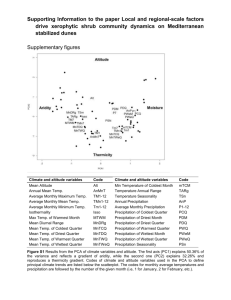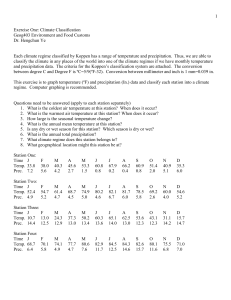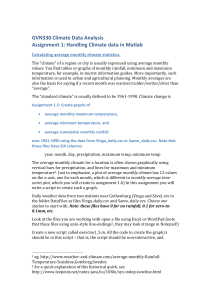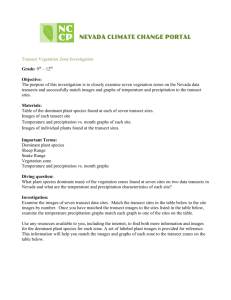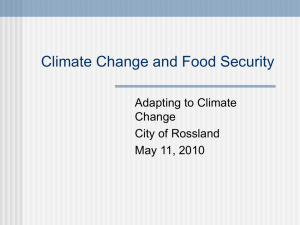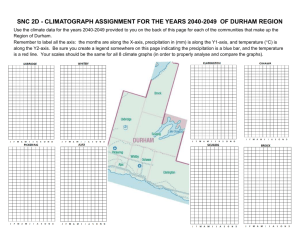present
advertisement
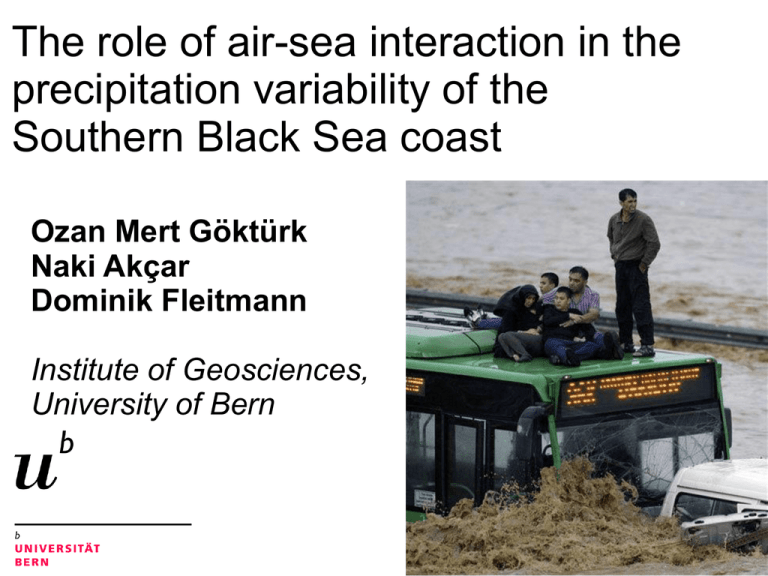
The role of air-sea interaction in the precipitation variability of the Southern Black Sea coast Ozan Mert Göktürk Naki Akçar Dominik Fleitmann Institute of Geosciences, University of Bern Aim To explain what 'air-sea interaction' is To demonstrate the role of air-sea interaction process in the present day precipitation variability of the southern Black Sea coast, by means of simple data analysis Possible implications of this mechanism in the paleoclimate context ? Low Air Temp + High Water Temp Sea / lake effect Precipitation Great Lakes of the North America Sea of Japan Black Sea ? ... Hypothesis: The southern Black Sea area must be one of the “sea/lake effect” regions. Test: Calculate correlations of temperature and sea surface temperature with precipitation! Low Air Temp + High Water Temp Sea / lake effect Precipitation Fall + Winter, 1951-1990 Correlations between air temperature and precipitation Temp Precip + Temp + Precip + November, 1951-1990 Correlations between air temperature and precipitation February, 1951-1990 Correlations between temperature and precipitation January+February vs February, 1951-1990 Correlations between temperature and precipitation Sea Surface Temp + Air Temp Precip + Conclusion Air - sea interaction is possibly the dominant precipitation generator for the Southern Black Sea coast This process can be quite independent from the large scale climate, for example cyclone frequency, Arctic-North Atlantic oscillation etc. Implications - Questions Warm and wet ? Or, cold and wet ? Possible contrast between Mediterranean and southern Black Sea areas, in terms of rainfall? Mountain glaciation mechanisms ? Finally... Sea Surface Temp anomaly 25.09.2008 Radar image, 27.09.2008 Wind speed in Istanbul: 140 km / h (all-time record) Sea Surface Temp anomaly 06.09.2009 08.09.2009 Istanbul, 09.09.2009 Thanks!

